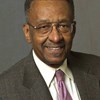Poverty is an uninteresting subject. Poverty has been, and continues to be, man’s standard fate throughout his entire history. The reason is simple. People are poor because they cannot produce much that is valued by others. The intriguing question is why a tiny percentage of the world’s population, for only a tiny part of man’s history, has been spared man’s usual fate. If we could answer that question, America’s wealth could be readily duplicated throughout the world.
While nobody has the complete answer, there are some clues, hunches, and bits of circumstantial evidence. Freedom is the connection. Where we find riches, we tend to find freer people. An examination of Amnesty International’s listings of human rights abuses shows a definite pattern where those nations with the least respect for human rights are also the poorest. By contrast, those with the greatest respect for human rights tend to be the richest.
—Walter E. Williams
The War on Words
Words—nasty or nice—are never more than passive sparks. Only when there’s something to burn can there be a fire. The tantrums you threw as a child, the rage you feel when your expectations are unfulfilled, the angry outbursts that follow stress in your life—these are learned responses to external events.
Each of us is responsible not only for how we act, but for how we feel. Yes, as children we were slaves to parental schooling and guidance. Values on our moral menu were instilled in us with little choice or control on our part. But—we don’t remain helpless toddlers. Humans have powerful, active centers of volition and reason in their noggins capable of discerning good from bad, better from worse. We are educable for life. Childhood emotions and behaviors can be silly, impetuous, and wrong—and they can be changed. We don’t have to be jerks just because Morn and Pop couldn’t do a better job.
Anti-hate/harassment ordinances seem now the vogue. City fathers and mothers, with altruistic impatience, try to protect minority sons and daughters from verbal sewage. We reflect: Prohibition failed to control alcohol consumption; the War on Poverty increased welfare lines; the War on Drugs is a horrible political addiction.
And now the War on Words: What will be its impact on freedom of speech? By extension, will we give credence to would-be censors of all forms of communication?
Words will never hurt us like the sticks and stones of bad laws.
—Jerry Boal
Congressional Reforms
Several recent reforms tend to bias the composition of the Congress in such a way as to be inimical to liberty.
First, with the advent of strict limits on outside income, members of Congress and high government officials appointed to office end up viewing the federal government as their principal source of wealth. This is no doubt a partial explanation for the actions of these officers of the state; laws are passed and regulations are enacted which have the effect of influencing a large number of their constituents to regard the state as their principal benefactor.
Second, full financial disclosure requirements ensure that only persons with a remarkable degree of personal tolerance of government intervention and invasion of privacy will seek or accept high office. It is all too easy for a man to suppose that what interventions and burdens he can tolerate, his neighbors can and ought to bear as well.
Third, campaign spending limitations and public financing of campaigns serve to limit the role of private wealth in elections. This means that fewer persons who have acquired wealth in freedom, and are thus favorably disposed to economic freedom, will gain office. Invariably, those who do not favor economic freedom favor political redistribution of wealth and the consequent diminution of freedom.
—Joseph S. Fulda
Public Employee Pay
Pay for employees of state and local governments rose four times faster than pay for employees in the private sector during the 1980s. By 1989, the average government employee at the state and local level received 9.1 percent more compensation than the average nongovernment employee. From 1980 to 1989:
-Average private sector employee compensation increased by 3.4 percent or $960 annually after adjusting for inflation.
-The average increase for employees of state and local governments was 14.6 percent or $4,031 annually after adjusting for inflation.
Thus, compensation for state and local government employees increased $4.20 for every $1.00 of increase in the private sector.
In all but five states, state employees have higher average wages and salaries than private sector employees. Local government employees average more than nongovernment employees in 36 states. During the 1980s:
-State government employee wages and salaries grew faster than those for private sector employees in all but four states.
-Wages and salaries of local government employees grew faster than those in the private sector in every state but Massachusetts.
Spending for education was not a major factor. Government employees not involved in education saw wages go up 79.2 percent before adjusting for inflation, compared to a 65.8 percent increase for those working in education.
—Wendell Cox and Samuel A. Brunelli
“America’s Protected Class”

